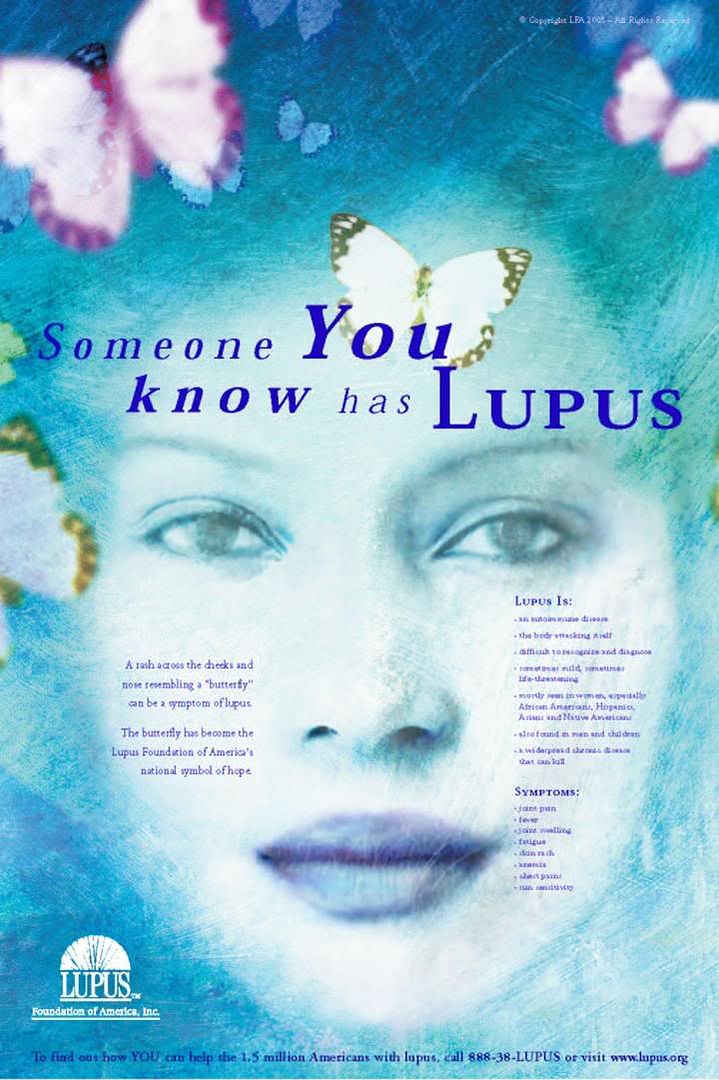 |
|
|
People Who Have Both Lupus and Antiphospholipid Syndrome Might Have Higher Risk of Thyroid Disease Friday, January 22, 2010 People Who Have Both Lupus and Antiphospholipid Syndrome Might Have Higher Risk of Thyroid DiseaseAntithyroid antibodies in antiphospholipid syndrome: prevalence and clinical associations. Authors: Mavragani CP, Danielides S, Zintzaras E, Vlachoyiannopoulos PG, and Moutsopoulos HM. (2009). Lupus 18: 1096-1099. What is the topic? The thyroid is a gland in the neck which helps the body keep order over how food and nutrients are handled and how fast people grow, gain or lose weight, how the heart beats, or how blood pressure and cholesterol levels in the blood respond to these changes. A protein called "thyroid peroxidase" helps to modify other proteins that the thyroid produces that perform all of these functions. Some people make antibodies (immune proteins) against their own thyroid peroxidase (these are called "anti-TPO"). People with anti-TPO sometimes have an underactive thyroid; this causes weight gain, fatigue, and a tendency to feel cold when other people around you do not. The antiphospholipid syndrome is a blood clotting disorder where antibodies are made against proteins that help to control how fast or slowly the blood clots. Many people with lupus have the antiphospholipid syndrome, although it can occur without other features of lupus. What did the researchers hope to learn? The researchers wanted to find out if there is a connection between thyroid disease and the antiphospholipid syndrome or lupus. Who was studied? 75 patients with antiphospholipid syndrome, 75 patients with lupus, and 75 healthy people were studied. 35 of the 75 patients who had antiphospholipid syndrome also had other features of lupus. There was no difference between the groups in terms of age, how long people had been diagnosed, or the ratio of women to men. How was the study conducted? Antibodies against the thyroid (anti-TPO) were measured in the blood of all the people participating in the study, and were compared among the different groups. What did the researchers find? Anti-TPO antibody was found more often in patients who had both antiphospholipid syndrome and lupus than in healthy people. What were the limitations of the study? This was a small study. Sometimes, if a study is too small, there will be a slanting of the outcomes just from a sort of "luck of the draw." These findings are interesting, but larger studies are needed to be more sure about them. This study was also conducted by looking back in time; this is called a "retrospective study." Studies that follow patients forward in time to see what happens to them are more accurate in finding cause and effect; those are called "prospective studies." In a prospective study, you know how many patients move away or stop coming to the clinic during the time you are studying them, and you can try to track them down and find out what happened to them. When you are looking backwards, all you know is information about the people who are left at the end of the time period you are studying them; you are missing a lot of information. Also, in a prospective study, you can decide in advance exactly what information you want to study and make sure you get that information at regular intervals for all the participants. In a retrospective study, you are limited to whatever ended up, without any advanced planning, in the medical chart. Therefore, this current study, being a small, retrospective study, raises an interesting question about the relationship between thyroid antibodies and the antiphospholipid syndrome and lupus, but should be confirmed with a larger, prospective study. What do the results mean for you? Patients with both antiphospholipid syndrome and lupus may be at increased risk for having thyroid antibodies. This is important to know because sometimes these antibodies can interfere with the functions of the thyroid gland and there are good treatments for this.
Comments:
Post a Comment
~~~ |
.:Find Me:. If you interested in content, please contact the Writer .:Want to Joint ?:. If you want to know more about lupus surferer's activities and want to donor your help and money, go here Need more consult ?, go here .:acquaintances:.
The Enterprise .:New Book:. .:talk about it:.
.:archives:.
.:Link-link website Lupus:.
Lupus Org .:credits:.
|